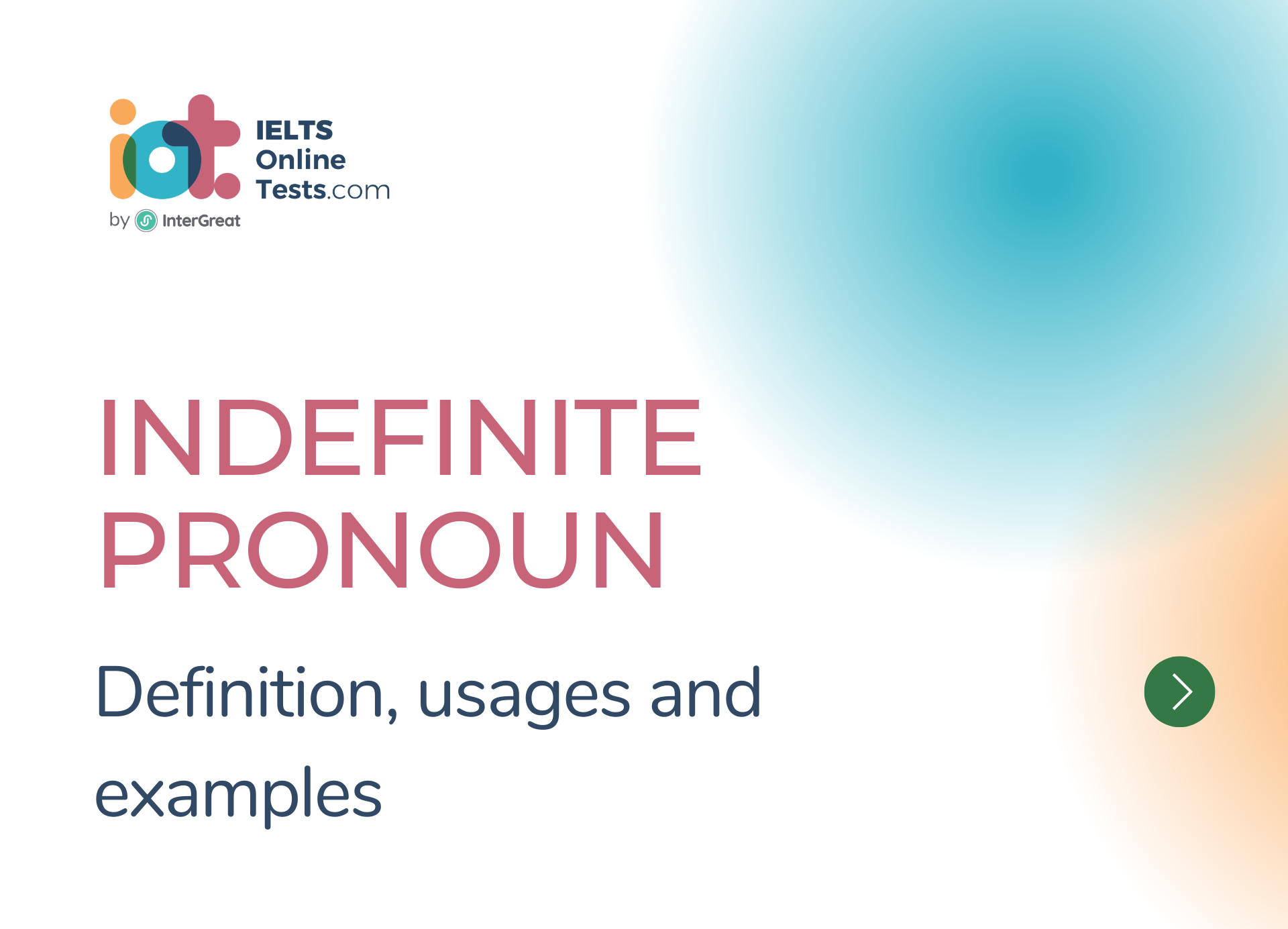
Indefinite pronoun definition, types and examples
Indefinite pronouns are a category of pronouns that refer to non-specific people, places, or things. They represent an unknown or unspecified number or quantity. Indefinite pronouns do not refer to any particular person or thing.
Here's an overview of indefinite pronouns:
Singular Indefinite Pronouns:
- Anyone: "Anyone can participate in the competition."
- Someone: "Someone is knocking at the door."
- Nobody: "Nobody likes to be ignored."
- Everybody/Everyone: "Everybody enjoyed the party."
- No one: "No one has the right to judge others."
- Somebody: "Somebody left their umbrella behind."
Plural Indefinite Pronouns:
- Several: "Several students volunteered for the project."
- Many: "Many have tried, but few have succeeded."
- Few: "Few understand the complexity of the situation."
- Others: "Some went home, while others stayed late."
- Both: "Both are responsible for their actions."
- Others: "Some prefer tea, while others prefer coffee."
Indefinite Pronouns indicating Quantity:
- All: "All are welcome to attend the meeting."
- Some: "Some of the books are missing from the shelf."
- Any: "Any will do, just pick one."
- None: "None of the information was accurate."
Indefinite pronouns are useful when you want to refer to a general or unknown group of people or things without being specific. They allow for more flexibility and inclusiveness in sentence construction.
Indefinite pronouns can also function as determiners when used before a noun, such as "many students" or "some books." The form of the indefinite pronoun used depends on whether it is singular or plural.
Understanding and correctly using indefinite pronouns help avoid repetition, add variety to sentence structures, and generalize statements when specific individuals or quantities are not known or relevant.




